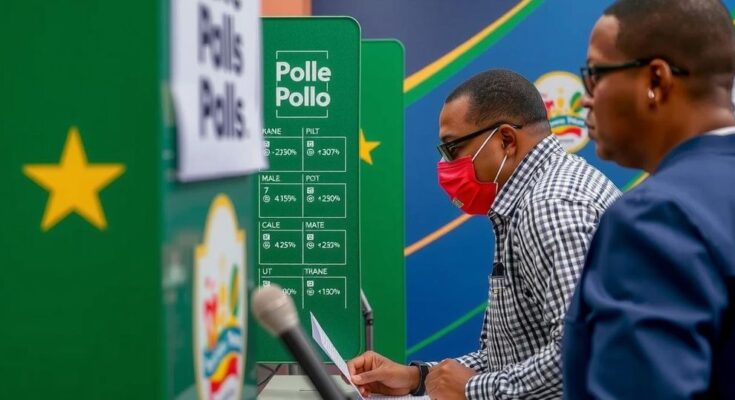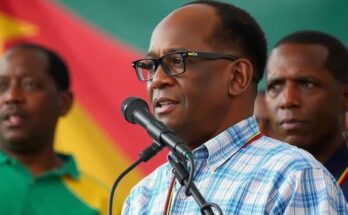Namibia’s electoral process faced severe disruptions during recent elections due to logistical failures, prompting a reopened opportunity for voting. Registered voters experienced extensive delays, leading to protests and heightened tensions, particularly among younger citizens. The ruling SWAPO party faces increasing challenges from opposition groups, raising the potential for significant political shifts in the nation.
Namibians were granted another opportunity to cast their votes on Friday, following the complications experienced during the initial elections two days prior. Logistical and technical difficulties, described by opposition factions as egregious, resulted in significant delays at various polling stations, leading many citizens to abandon their efforts to vote. Amidst the 1.5 million registered voters, frustrations boiled over as they faced waits as long as twelve hours due to technological malfunctions and shortages of ballot papers. Such incidents have eroded public confidence in the electoral process, marking a critical point for the ruling South West Africa People’s Organisation (SWAPO) party amidst their ongoing dominance in Namibian politics.
The opposition parties, driven by a young and disillusioned voter base and a rising sentiment for change, criticized the technical failures that marred the electoral process. Reports indicated that electronic registration tablets overheated, and inadequate supplies of ballot papers led to unnecessary delays. Observers highlighted confusion from the electoral authority regarding their communication about extended voting hours for certain polling stations, contributing further to the chaos. The frustrations resonated through public demonstrations, with protestors calling the elections neither free nor fair.
As the political landscape evolves, the opposition Independent Patriots for Change (IPC) emerged as a viable challenger to SWAPO. Interestingly, with young voters representing 42 percent of the electorate, there exists a palpable drive among citizens dissatisfied with ongoing unemployment and social inequalities. This environment sets the stage for significant shifts in power dynamics, especially considering the potential first female presidency if SWAPO’s vice-president, Netumbo Nandi-Ndaitwah, secures victory against IPC rival Panduleni Itula in the anticipated run-off election. Underlying tensions suggest that these elections have not only tested the operational integrity of the electoral process but also the political resolve of traditional parties in Namibia.
The recent elections in Namibia have brought to light significant deficiencies in the electoral process, particularly in the context of the long-standing dominance of the SWAPO party, which has governed for over 34 years. Opposition parties are capitalizing on the growing discontent among younger voters, many of whom are skeptical toward established political entities that emerged from the country’s liberation struggle. As Namibia has reached a political juncture marked by increased civic activism and calls for transparency, the repercussions of this electoral chaos may produce serious implications for governance and public trust moving forward.
The reopening of polls in Namibia highlights substantial challenges faced by the electoral process, reflecting deep-seated frustrations among voters disillusioned by logistical failures and systemic inequality. The heightened agitation among the electorate may serve as a catalyst for political change as opposition parties seek to leverage the current dissatisfaction against SWAPO’s protracted rule. As Namibians exercise their right to vote again, the outcome will undoubtedly influence the nation’s political trajectory and governance moving forward.
Original Source: www.france24.com




